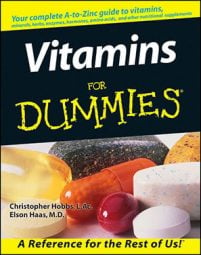Oils and fats are among the more controversial components of the modern diet. You should get your essential fats mostly from whole foods. Two bonuses of this approach are that food sources are much more stable than the isolated oils, and you can be sure they have not been hydrogenated.
The following list outlines a few simple conclusions about fats and oils:
For optimum health, and to avoid disease, you want to keep fats and oils in your diet to a minimum. You do, however, need some high-quality fats and oils, called essential fatty acids, for the health of all the cells of your body, your organs, and your brain. (So don’t avoid fats and oils like the plague — just familiarize yourself with the ones that are good for you and avoid the unhealthy ones.)
Eat as little saturated fat as possible. Saturated fats are abundant in farm-raised meats (except fish), or any products that contain meat, eggs, or dairy products, such as cheese and milk (unless they are fat-free).
The very best oil to cook with is extra virgin or virgin olive oil. It doesn’t break down as easily as other oils, creating toxic ingredients that are hard for your body to digest. It’s also one of the heart-friendly oils high in monounsaturated fatty acids. It is the only oil you should cook with, except for an occasional meal with cold-pressed and organic corn, soy, or sesame seed oil for variety.
Olive oil is great for salad dressings, for which the oil is not heated. Other oils that are healthier when not heated include sesame seed, almond, flaxseed, soy, corn, or high-quality sunflower oil — actually any oil is better uncooked or extracted without using heat or chemicals. Use them from time to time for variety.
Keep all oils sealed from air and in the refrigerator — as long as a month or two is safe. Keeping your oils in the refrigerator prevents them from being degraded by light. For convenience, keep a small bottle of olive oil on the counter for cooking and sprinkling on your food. (Olive oil tends to harden in the refrigerator, but this doesn’t cause any damage to the oil.)

